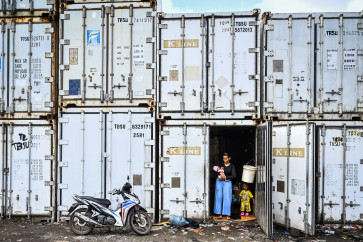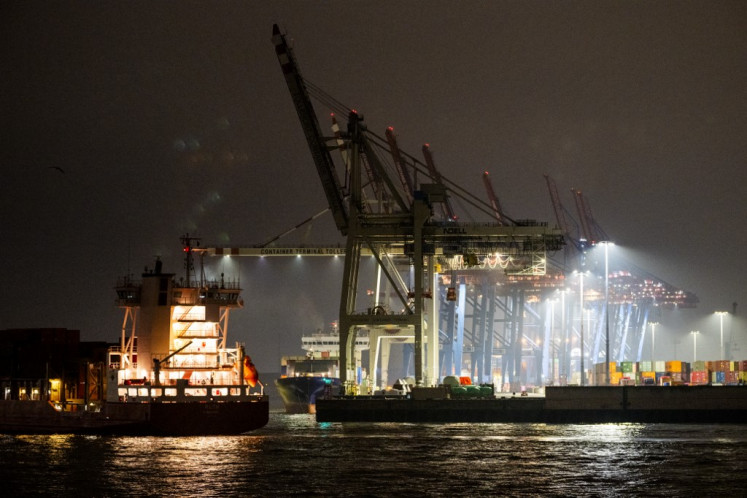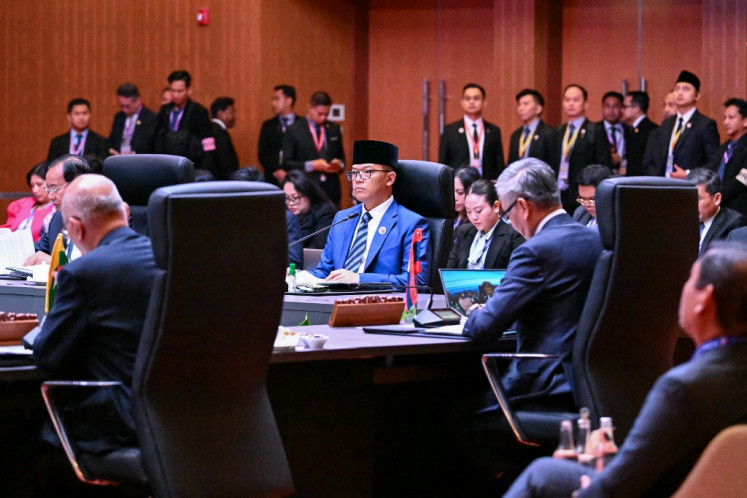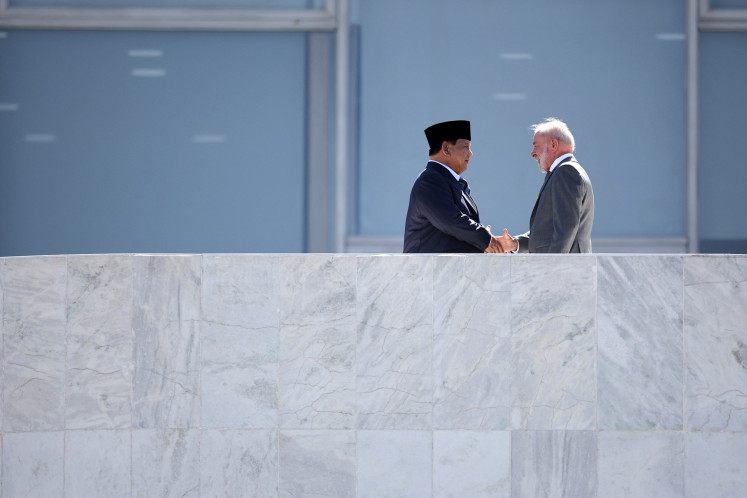Popular Reads
Top Results
Can't find what you're looking for?
View all search resultsPopular Reads
Top Results
Can't find what you're looking for?
View all search resultsCorporate activism amid Myanmar’s crisis
Business entities impacted by the coup in Myanmar are likely assessing their risk management programs and long-term sustainability goals.
Change text size
Gift Premium Articles
to Anyone
M
yanmar is once again governed by military junta after nearly ten years of civilian rule. The ousted state counsellor, Aung San Suu Kyi, and members of her party, the National League for Democracy (NLD), are under house arrest.
The military leadership, like all military juntas, claims its rule is necessary for the benefit of the nation. Specifically, the junta has alleged voting irregularities and widespread fraud in Myanmar’s recent national election, an election that gave the NLD an overwhelming victory over the opposition party. And it claims that by issuing a one-year state of emergency, the junta will form a more disciplined democracy. Meanwhile, a free and fair election has been overturned, and dissent is being crushed as evinced by hundreds of arrests and a mounting death toll. There seems to be no room for compromise.
The international community has condemned the actions of commander-in-chief Min Aung Hlaing’s regime. Tom Andrews, United Nations special rapporteur on Myanmar, said, “Words of condemnation are welcome but insufficient. We must act. […] The world must act.”
The world must act as the UN Security Council, individual nations and buyers of goods deliberate, employ soft power and express concern about the events in Myanmar. Global citizens must consider themselves an essential element in this evolving story and demonstrate that the outcry is not just a transient show of solidarity with the people of Myanmar.
According to the Fair Labor Association, one third of Myanmar’s total exports are in the garment, footwear and accessories sectors, which translates to US$5.8 billion. And approximately 500,000 workers are employed in nearly 600 factories across the country. With this prosperity, Myanmar has experienced numerous social and economic gains, which are now at risk because of Min Aung Hlaing’s coup.
Business entities impacted by the takeover in Myanmar are likely assessing their risk management programs and long-term sustainability goals. With the disruptions caused by COVID-19 and the social unrest of the past year, these business organizations are likely wondering whether they can withstand the uncertainty of having Myanmar as a sourcing partner.
While they are weighty risks, companies must not forget us, the consumers. Consumers demand integrity and transparency from businesses. They want to know what a brand or company stands for and that their values match their own. In a 2017 study conducted by Wunderman & Penn Schoen Berland, seventy-nine percent of US consumers aged 18 to 65 agreed that “brands must actively demonstrate ‘they understand and care about me’ before they consider purchasing”.
According to Richard Levick, former contributor at Forbes, “Eight in ten consumers say they want their brands to have a social purpose.” For millennials, forming a relationship with a brand without compatible ideals or social purpose is a non-starter.
In today’s era of casual activism, to be sustainable, companies must adapt to the needs of the consumer. They can no longer drive the marketing space by simply employing an attractive model or a catchy slogan.
Companies must practice social activism, a step beyond corporate social responsibility. Companies must “advocate for government policy changes based on social and moral issues”. This is the difference between not engaging in corporate pollution and advocating for laws that regulate corporate pollution.
Patagonia, an American clothing company, is a notable example of an activist company. The organization markets itself as a business out to save the planet. According to Patagonia, “The protection and preservation of the environment isn’t what we do after hours. It’s the reason we’re in business and every day’s work.” And to back up their purpose, the company sued the Trump administration over the protection of public lands, invested in grassroots campaigns and helped customers repair their worn out clothing to avoid buying new garments.
Patagonia created and implemented a business model that put profitability at risk. And in doing so, the company has seen “explosive growth and enjoyed great loyalty (and love) from their customers”. Corporate activism can be good for business.
Periods of social unrest have been opportunities for societal acknowledgment and change. In response to the Rohingya crisis in Myanmar, Cartier, a luxury jeweler, reexamined its relationship with Myanmar. The multinational company stopped buying Myanmar-sourced gemstones.
And Cartier is not alone. Multinational corporations must ask themselves, is it better to remain silent on human rights and labor violations to avoid government retribution or is it better to find an equally favorable but less controversial supply partner? We should expect that they would take the latter position.
While we consumers cannot be certain whether companies that engage in social activism are truly invested in transforming policy or are simply being performative to boost sales, we can be sure that we are the common denominator. We are the pendulum between government and business. Our voices are heard through our money, votes and protests.
Today, we must collectively decide to use our money to protest the injustice taking place in Myanmar.
In the days, weeks and months ahead, it is right that companies engage in “enhanced human rights due diligence and responsible purchasing practices to identify whether they are doing business, directly or indirectly, with companies that are known to be owned or controlled by the military services of Myanmar”.
It is certainly right that they honor their present commitments to factories and members of their supply chains. Workers should not bear the brunt of Min Aung Hlaing’s quest for a more disciplined democracy.
At the same time, companies must consider consumer sentiment an important factor in the decision-making process. Condemnation and lukewarm policies will not cause us to open our wallets. They must take actions that will push Myanmar in the right direction, if not overnight, then in the near future.
***
Marzuki Darusman is chair of the Foundation for International Human Rights Reporting Standards (FIHRRST) and Tequila Bester is program coordinator of FIHRRST.










